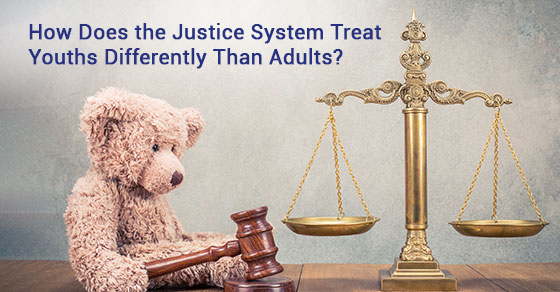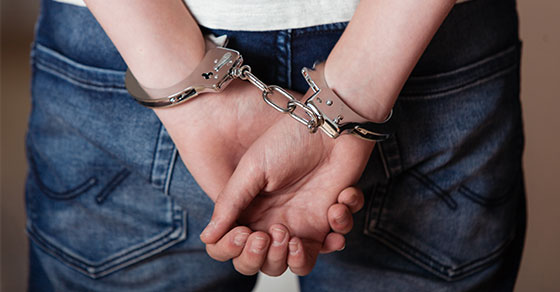How Does the Justice System Treat Youths Differently Than Adults?

Blog by Arun S. Maini
This blog seeks to answer the following questions:
- Why are youths treated differently than adults in the criminal justice system?
- How are youths treated differently than adults in the criminal justice system?
Why are youths treated differently than adults by the criminal justice system?
Youths are young people who are at least 12 years old and under the age of 18. The criminal law treats them less harshly than it treats adults, and is more flexible in its approach. The reasons for this are:
- The brains, character and independence of young people are not as fully developed as they are with adults. As a result, they cannot be “labelled” in the same way, and they are given more of the benefit of the doubt when it comes to punishment for criminal offences;
- Youths perceive time differently than adults, and it is important to address misbehaviour with consequences sooner for minors;
- There is more of an opportunity to change the behaviour and perceptions of youths than adults, and the criminal justice system seeks to “correct” misbehaviour before a youth becomes an adult and more set in his or her ways. In other words, youths are more likely to learn from their mistakes;
- There is a greater power imbalance between the state and a youth than there is between the state and an adult. The youth is more vulnerable, and society places great importance on safeguarding youth.
All of this means that in the criminal justice system, there is more willingness to offer youths a “second chance”.
How does the criminal justice system treat youths differently from adults?
There are several ways that youths are treated differently:
- There are separate youth courts that are staffed by Crown attorneys and judges who often have specialized knowledge and experience in dealing with youth cases. They approach the case in a more open-minded, flexible, compassionate manner than with adults. As a general rule, prosecutors are looking for ways to resolve youth cases that promote acknowledgement of responsibility; rehabilitation, insight and personal growth. A more holistic “team” approach involving the judge, the Crown, social workers and police seek to address the problems that caused the youth to offend, and to get him/her back on the right track.
- Youths are not identified by name: their identity is protected and they are referred to in court proceedings by their initials. Proceedings in court involving youths are recorded on a separate system.
- Youths are given more rights than adults. For example, the police have a detailed checklist of steps they must follow before they can interrogate a youth and take a statement. Upon arrest, a youth has the right to speak to a parent, not just a lawyer; and, unlike with an adult, the youth has the right to have a lawyer and/or parent present during an interrogation.
- There are more options available for dealing with youth than for adults. For example, they have access to more diversion programs more often, that remove them from further criminal prosecution. You can read about one example of youth diversion called the Youth Justice Committee in our blog here. And you can read how diversion works for adults in our blog here.
- If a youth is found guilty, there are more creative and flexible sentencing options to impose a consequence. And the law specifically states that jail is to be ordered only as a last resort, and limited as much as possible.
- Youth records are treated differently than the criminal records of adults; they are more private, less easily accessed by the public, and are sealed when the youth turns 18. The intention is to avoid stigmatizing a youth and limiting school and job opportunities when they are not fully mature and have more chance to reform their behaviour.
If you or your child are facing criminal charges in youth court, and need the advice of an experienced and skilled lawyer to help you through the legal process, call The Defence Group for a free consultation at 877-295-2830.
Arun S. Maini is a criminal lawyer and former prosecutor with over 25 years of experience.


